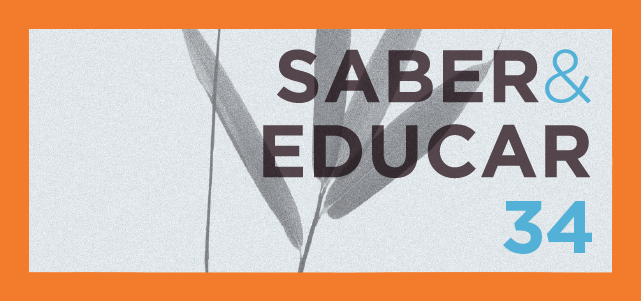Cross-National Student Perspectives on Video Self-Modelling in Nursing Education: Findings from the ClinicalModelling Project
DOI:
https://doi.org/10.25767/se.v34i1.41851Keywords:
Video-Self Modelling;, Nursing Education;, Student PerspectivesAbstract
This study, explores nursing students’ experiences with video self-modelling (VSM) using smart glasses in simulated clinical training. VSM involves students recording their performance during clinical simulations and later reviewing the footage to identify errors, reflect on their practice, and receive personalized feedback. The method aims to enhance self-awareness, skill retention, and self-efficacy in nursing education. Eleven undergraduate and postgraduate nursing students from Portugal, Spain, Slovenia, and Poland participated in a qualitative focus group after completing training with smart glasses. The researchers analyzed data using Creswell and Poth’s (2018) qualitative spiral method. Three main domains emerged from the content analysis: learning impact, technical constraints, and emotional/pedagogical experience. In terms of learning impact, students highlighted improved self-assessment, reflective thinking, and skill transfer to real clinical settings. Reviewing their own recordings helped them recognize subtle mistakes, retain procedural memory, and improve performance. Personalized feedback based on the videos was seen as more meaningful than traditional methods. However, technical constraints were noted, including issues with device comfort, fit, weight, and recording reliability. While most students adapted quickly to the technology, concerns were raised about the smart glasses’ ergonomics and occasional malfunctioning of voice commands or camera angles. Emotionally, students initially felt nervous and self-conscious being recorded, but this discomfort lessened over time. Many reported increased motivation and confidence as they observed their own progress. Participants expressed strong support for expanding VSM into broader areas of nursing education, suggesting it be integrated into curricula for both technical and communicative skills. Cultural differences also influenced perceptions; for example, Polish and Slovenian students focused on precision, while Portuguese and Spanish students emphasized emotional aspects. Despite some technical limitations, the study concludes that VSM with smart glasses is a promising, learner-centered strategy for clinical education, fostering reflection, autonomy, and skill development. The authors recommend further research into long-term impacts, scalability, and technological improvements to maximize the method’s effectiveness across diverse healthcare training contexts.References
Araújo, M., & Moura, O. (2011). Estrutura fatorial da General Self-Efficacy Scale numa amostra de professores portugueses. Revista Laboratório de Psicologia, 9(1), 95-105. https://doi.org/10.14417/lp.638
Akcaoğlu, M. Ö., Dirlik, E. M., & Külekçi, E. (2022). The mediating role of metacognitive awareness in the relationship between critical thinking and self-regulation. Thinking Skills and Creativity, 47, 1–11. https://doi.org/10.1016/j.tsc.2022.101187
Altmiller, G., & Pepe, L. H. (2022). Influence of Technology in Supporting Quality and Safety in Nursing Education. Nursing Clinics of North America, 57(4), 551–562. https://doi.org/10.1016/j.cnur.2022.06.005
Calubayan, L. D., & Ofrin, D. O. (2023). Video Self-Modelling as an Interactive Learning Tool in enhancing Student’s Engagement in Physical Activity. International Journal of Multidisciplinary, 4(6), 2117–2130. https://doi.org/10.11594/ijmaber.04.06.34
Creswell, J. W., & Poth, C. N. (2018). Qualitative Inquiry and Research Design: Choosing Among Five Approaches (4th ed.). Sage Publications.
Hung, C., C., Kao, H.-F. S., Liu, H.-C., Liang, H.-F., Chu, T.-P., & Lee, B.-O. (2021). Effects of simulation-based learning on nursing students’ perceived competence, self-efficacy, and learning satisfaction: A repeat measurement method. Nurse Education Today, 97(97), 104725. https://doi.org/10.1016/j.nedt.2020.104725
Mejeh, M., Sarbach, L., & Hascher, T. (2024). Effects of adaptive feedback through a digital tool – a mixed-methods study on the course of self-regulated learning. Education and Information Technologies, 29, 1–43. https://doi.org/10.1007/s10639-024-12510-8
Lauermann, F., & Hagen, I. (2021). Do teachers’ perceived teaching competence and self-efficacy affect students’ academic outcomes? A closer look at student-reported classroom processes and outcomes. Educational Psychologist, 56(4), 1–18. https://doi.org/10.1080/00461520.2021.1991355
Marino, D., & Wayne, J. (2015). The Technological Barriers of Using Video Modeling in the Classroom. The Journal of Special Education Apprenticeship, 4(1), 1–16. https://doi.org/10.58729/2167-3454.1040
Nakata, Y., Oga-Baldwin, W. L. Q., & Tsuda, A. (2025). Student perceptions of feedback and self-regulated language learning: A mixed-methods investigation. System, 131, 1–14. https://doi.org/10.1016/j.system.2025.103654
Rodrigues, L., Pereira, F., Toda, A., Palomino, P., Pessoa, M., Carvalho, L., Fernandes, D., Oliveira, E., Cristea, A., & Isotani, S. (2022). Gamification suffers from the novelty effect but benefits from the familiarization effect: Findings from a longitudinal study. International Journal of Educational Technology in Higher Education, 19(1), 1–25. https://doi.org/10.1186/s41239-021-00314-6
Sasson, I., & Tifferet, S. (2024). Enhancing Undergraduate Metacognitive Awareness and Self‐Efficacy: Effective Instructional Practices for Research Question Formulation. European Journal of Education, 60, 1–13. https://doi.org/10.1111/ejed.12888
Koçan, S., Kulakaç, N., Aktuğ, C., & Demirel, S. (2024). The Effect of Video-Based Simulation Training on Nursing Students’ Motivation and Academic Achievement. CIN: Computers, Informatics, Nursing, 42(6), 440-447. https://doi.org/10.1097/cin.0000000000001117
Downloads
Published
How to Cite
Issue
Section
License
Copyright (c) 2025 Goreti Marques, Beatriz Edra, Eduardo Batalha, Joana Martins, Vanessa Sousa, Abílio Teixeira

This work is licensed under a Creative Commons Attribution-NonCommercial-ShareAlike 4.0 International License.
- The opinions expressed by the authors are their exclusive responsibility.
- The journal reserves the right to make the original, normative changes, spelling and grammar, in order to maintain the standard language of worship, while respecting the style of the authors.
- Authors retain copyright and grant the journal right of first publication with the work simultaneously licensed under a Creative Commons Attribution License (BY-NC-SA 4.0) that allows others to share the work with an acknowledgement of the work's authorship and initial publication in this journal.
- Authors are able to enter into separate, additional contractual arrangements for the non-exclusive distribution of the journal's published version of the work (e.g., post it to an institutional repository or publish it in a book), with an acknowledgement of its initial publication in this journal.
- Authors are permitted and encouraged to post their work online (e.g., in institutional repositories or on their website) prior to and during the submission process, as it can lead to productive exchanges, as well as earlier and greater citation of published work (See The Effect of Open Access).
PRIVACY STATEMENT
The names and email addresses entered in this journal site will be used exclusively for the stated purposes of this journal and will not be made available for any other purpose or to any other party.





